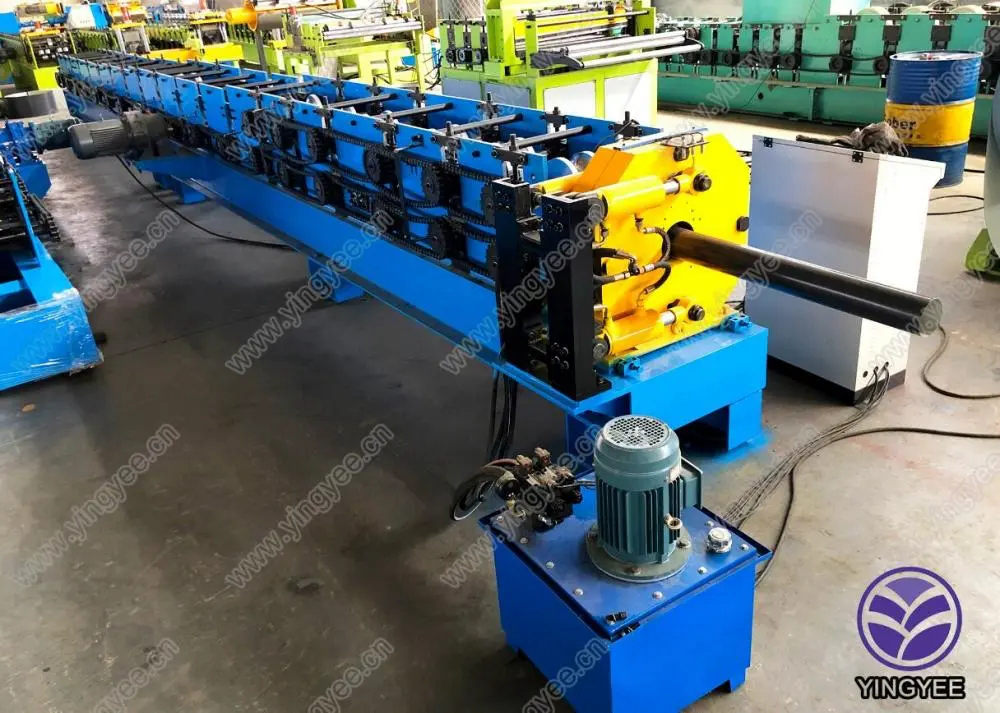
The Evolution and Significance of Roller Door Roll Forming Machines
In the world of manufacturing and metal fabrication, roller door roll forming machines have emerged as vital tools for producing high-quality roller doors used in various applications, including warehouses, garages, and industrial facilities. These specialized machines employ a continuous bending process to transform flat metal strips into pre-defined cross-sectional shapes, enhancing production efficiency and lowering costs.
The Mechanics Behind Roll Forming
Roll forming is a progressive manufacturing method where a flat metal strip is fed through a series of pairs of rolls. Each pair of rolls reshapes the strip incrementally until the desired profile is achieved. One essential type of product produced by this method is the roller door, which is characterized by its ability to roll up neatly into a compact form, making it ideal for spaces that require unobstructed openings.
The roller door roll forming machine typically includes several components, such as a decoiler, roll forming station, cutting station, and a control system. The decoiler unwinds the metal coil, allowing it to flow into the roll forming section. The roll forming station consists of multiple sets of rollers configured to shape the metal, while the cutting station ensures that the rolled profiles are cut to precise lengths as required.
Advantages of Roller Door Roll Forming Machines
Several key advantages make roll forming an attractive manufacturing process for producing roller doors
1. High Production Efficiency The continuous feed and shaping process allows for significant volume production in a shorter time frame. This efficiency is crucial in meeting the demands of industries with high turnover.
2. Material Utilization Roll forming minimizes wastage of materials, as the process involves shaping metal strips with precision. Additionally, it can accommodate a variety of materials, including galvanized steel, aluminum, and other alloys.
3. Consistent Quality Automated roll forming machines produce uniform products with consistent dimensions and surface finishes, meeting stringent quality standards and reducing the need for extensive secondary operations.

4. Flexibility in Design Modern roller door roll forming machines are equipped with the capability to produce customized profiles tailored to specific customer needs. Manufacturers can modify the machines quickly to accommodate different designs without significant downtime.
5. Cost-Effectiveness Despite the initial investment cost, the long-term benefits of reduced material waste and labor costs, combined with the ability to produce large volumes, make roll forming a cost-effective option for businesses.
Applications in the Industry
Roller doors are widely used across many sectors, from residential garages to commercial warehouses. Their effectiveness in protecting spaces while providing convenient access has led to increased demand. In warehouses and distribution centers, roller doors facilitate the quick movement of goods while enhancing security measures. In agricultural facilities, they provide necessary insulation and protection against the elements.
Trends and Innovations
As industries evolve, so do the technologies surrounding roller door roll forming machines. Automation and smart manufacturing techniques are becoming increasingly prevalent, with machines now equipped with digital control systems that allow for real-time monitoring and adjustments. Innovations in materials also play a significant role, as manufacturers explore new alloys and composite materials that can improve durability and thermal insulation properties.
In addition, sustainability is becoming a focal point in manufacturing practices. Companies are actively seeking ways to reduce their environmental footprint by minimizing waste and optimizing energy consumption in the roll forming process.
Conclusion
In conclusion, roller door roll forming machines represent a cornerstone of modern manufacturing in the metal fabrication industry. With their ability to produce high-quality, cost-effective, and versatile roller doors, these machines not only meet the demands of various sectors but also pave the way for future innovations in manufacturing. As technology continues to advance, the role of these machines in facilitating efficient production will undoubtedly expand, establishing them as indispensable assets in the industrial landscape.